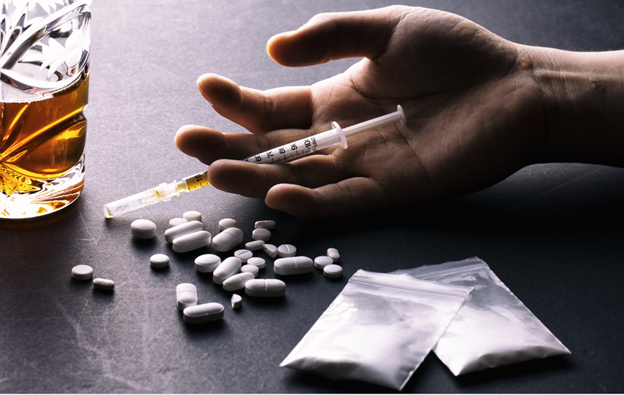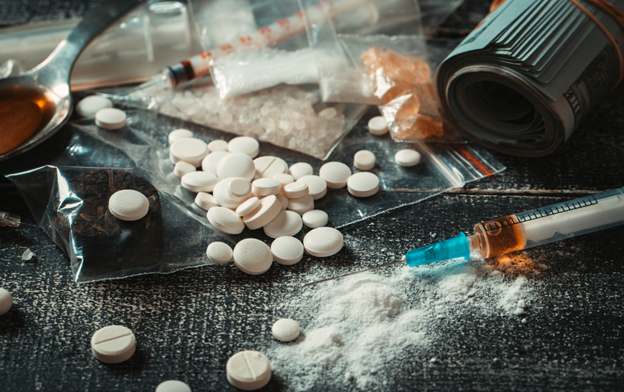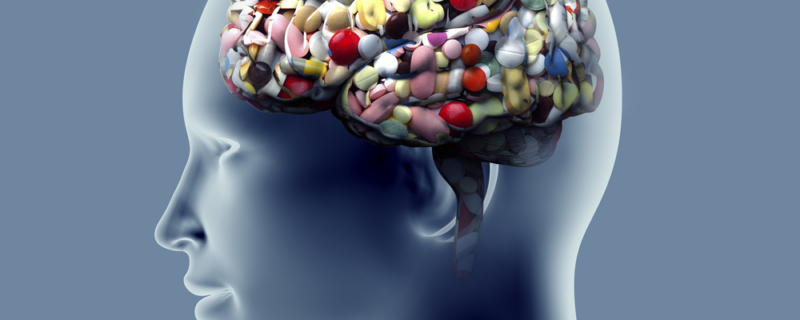The brain, to put it simply, is an incredibly complex organ. It has billions of nerve cells, called neurons. The neurons comprise a complicated system that connects the brain to the rest of your body which allows communication to occur in a matter of seconds.
Your brain essentially enables everything from your thoughts to your emotions to your motor function. So what happens if something interferes with the brain’s regular processes? What does something like substance dependence or drug misuse do to your brain?

How Do Drugs Affect the Brain
When drugs enter an individual’s system, they alter the way the brain sends, receives, and processes information. They obstruct the substances known as neurotransmitters, which are responsible for sending messages between neurons.
Drugs have different effects on the brain. Amphetamine, for example, has the ability to stimulate neurons to produce atypical amounts of neurotransmitters, which enhances regular neuronal transmission. On the other hand, drugs like marijuana can mimic the chemical structure of a natural neurotransmitter and can attach themselves and activate the neurons.
Different drugs affect different brain regions. This leads to various effects including altered mood, perception, and cognitive function. The mechanisms of drug action, including mimicking neurotransmitters, blocking neurotransmitter reuptake, preventing neurotransmitter breakdown, and increasing or decreasing neurotransmitter release could result in enhanced or diminished neural activity.
Short-Term Effects of Substance Abuse
Substance abuse can have a wide range of negative consequences, impacting both the body and mind. The specific effects a person experiences will depend on several factors, including the type of substance used, the amount consumed, how it’s taken, and how long the person has been abusing it. However, there are some common short-term effects that are frequently seen across different substances.
Physical Effects
In the short term, substance abuse can lead to a variety of physical problems. These can include increased heart rate, elevated blood pressure, nausea and vomiting, drowsiness or fatigue, reduced coordination and motor skills, slurred speech, changes in pupil size, sweating or chills, tremors, muscle cramps, headaches, respiratory issues, and even seizures. In severe cases, there’s also a risk of overdose and poisoning.
Short-Term Mental Effects
Substance abuse doesn’t just affect the body; it can significantly impact mental health as well. Common short-term mental effects include altered mood swings, ranging from euphoria to depression and anxiety. Hallucinations, delusions, paranoia, confusion, and memory problems are also possible. Additionally, substance abuse can lead to increased aggression, agitation, trouble focusing, and feelings of invincibility.

Long Term Effects of Substance Abuse
Substance abuse over an extended period can have serious consequences for your health, both physically and mentally. The severity of these effects depends on the type of substance used and the amount consumed.
Physical Effects
Long-term substance abuse can lead to a variety of chronic health problems. These include respiratory issues like lung damage and bronchitis, cardiovascular problems like heart disease and high blood pressure, and damage to organs like the liver, kidneys, and gastrointestinal system. Furthermore, substance abuse increases the risk of infectious diseases such as HIV and hepatitis. Neurological damage and chronic pain are also potential effects.
Mental Effects
People struggling with addiction often experience persistent depression or anxiety, cognitive impairments like memory loss or difficulty concentrating, and personality changes. There’s also an increased risk of developing mental health disorders like schizophrenia or bipolar disorder. Chronic paranoia, hallucinations, emotional instability, impaired decision-making, and social isolation are other potential long-term mental effects.
How to Repair Your Brain After Drug Use
Drug use, especially long-term use and dependence, can greatly harm the brain and alter how the mind functions. The brain’s amazing neuroplasticity or ability to change and adapt fortunately allows it to recover even from extended drug use. Of course, the time it would take for the brain to recover would depend on the extent of damage it has endured.
There are a lot of ways you can jumpstart brain repair and recovery.
Seek Professional Help
Knowing and accepting that you need help is a big step towards receiving the help you need. Look for the right professional that can help you. You can engage in therapy and counseling to help you address the mental or psychological aspects of substance dependence. Look for a provider that is specially trained in treating substance use disorders and utilizes evidence-based treatments such as cognitive behavioral therapy (CBT), Motivational Interviewing, and trauma-informed approaches.
Get Medical Treatment
Consult with healthcare providers for ways to help manage withdrawal symptoms and support brain recovery. Make sure to have regular check-ups to properly monitor your progress and make necessary changes to your treatment plan.
Stick to a Healthy Lifestyle
A healthy lifestyle can go a long way in helping the brain recover. You can start with a balanced diet which includes food for brain health. Try to avoid unhealthy options that can have an impact on brain function. You should also drink plenty of water to maintain overall function.
Exercise has also been known to help improve brain function as well as promote the growth of new brain cells. You can also practice meditation or yoga to help reduce stress. Sufficient and good quality sleep could also greatly aid brain recovery.
Stimulate Your Brain
Cognitive activities like solving puzzles, reading, and learning new skills are great ways to keep your brain stimulated. Such activities can also improve brain plasticity and cognitive function.
Build a Healthy Support System
It is equally important to surround yourself with family and friends who are committed to helping you remain sober. Positive interactions with these people can also improve mood and mental health.
Be Consistent
Remember that while the brain is capable of returning to normal function after damage it could take time. Be patient and consistently push through the recovery process. Stay away from harmful substances that can hinder your recovery.
Find Recovery with Positive Sobriety Institute
There are a number of ways to successfully embark on the path to recovery. You simply must be willing to take the first step. Positive Sobriety Institute in Chicago, IL can provide you with the proper care and support you need to get back to the healthy and sober version of yourself.
From assessment to counseling and therapies and even down to relapse prevention, our team of professionals in Chicago can help you begin your healing journey. Set a free consultation today!


